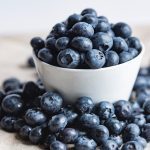Heart-healthy dish: Quinoa salad with mixed greens
Quinoa salad with mixed greens is a delicious and nutritious dish that offers numerous health benefits.
Vegan and vegetarian diets are more heartful, study finds
A new study shows that people who choose a vegan or vegetarian diet may be more likely to exhibit certain aspects of heartfulness.
Olive pomace oil could help prevent heart disease risk
In a new study, a group of scientists wanted to find out if consuming olive pomace oil (OPO) had any effect on heart health.
DASH diet is good for your blood pressure, and fruit and vegetable diet may...
The DASH diet was able to lower participants' blood pressure more effectively than the "fruits and vegetables" (F/V) diet
Eating whole grains could help prevent heart disease, death risk
Consuming whole grains, like whole wheat bread, oatmeal, and brown rice, can help protect your heart and overall health.
Mediterranean diet could help reduce heart disease, death risks
Out of the seven named dietary programs, Mediterranean and low-fat dietary programs were found to be the most effective in reducing the risk of all-cause mortality.
This nutrient is especially important for women’s heart health
A new study found that women need to get more potassium in their diets to protect their heart health.
Wild blueberries can benefit your heart and brain
Have you ever heard of blueberries being good for your brain and heart? It turns out that there is evidence to support this idea!
Nuts and seeds may help lower heart disease risk
Researchers found eating a healthy diet that includes nuts and seeds may help lower the risk of heart disease and improve heart health.
Mediterranean diet could help prevent heart disease in women
Scientists from The University of Sydney and elsewhere found that the Mediterranean diet could help prevent heart disease in women.










